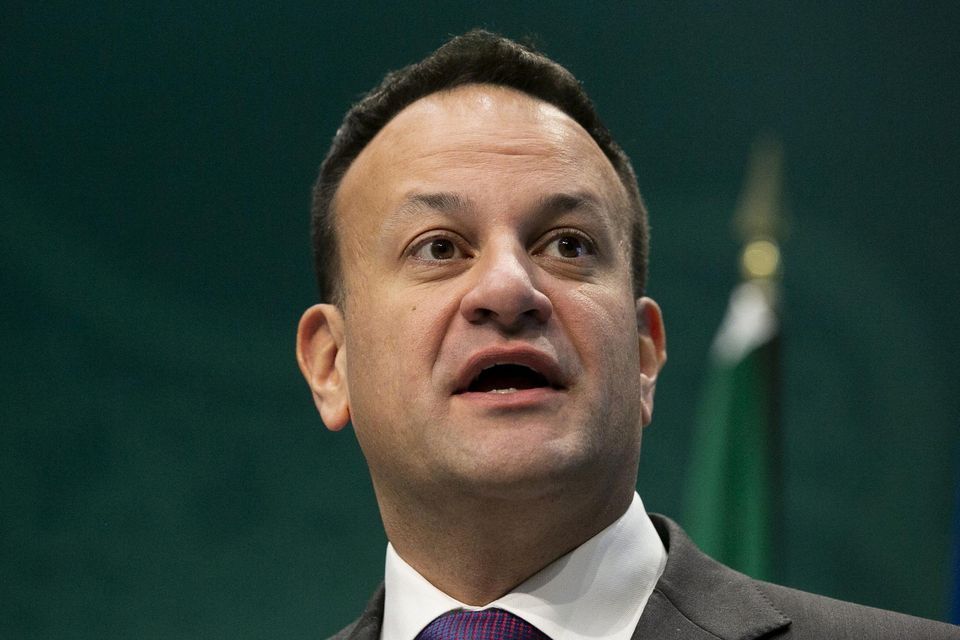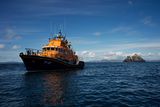EU and NATO may be asked to help defend Ireland’s undersea cables from risk of Russian sabotage, Taoiseach says
Taoiseach Leo Varadkar. Photo: Gareth Chaney
IRELAND will consider seeking help from the EU – or even NATO – to defend vital undersea data cables and other installations in Irish coastal waters, the Taoiseach has said.
Mr Varadkar was speaking at a European security conference in Moldova, close to the Ukrainian war zone, which is being attended by 46 government leaders.
His comments come amid suspicions that Russian vessels may be mapping of the seabed off the Irish coast and debate about future security options for Ireland which is currently militarily neutral.
Mr Varadkar said the Government would seriously consider joining a marine defence scheme for such vital cables, linking Ireland to the EU and USA. This security scheme may be led either by the EU’s defence cooperation regime – or the western defence alliance, NATO.
"Because we are an island nation, our seas are seven times greater than our land area, and going through those seas are a lot of really important infrastructure and communications cables that connect Ireland to the world and Europe to North America," the Taoiseach said.
Mr Varadkar mentioned the Nord Stream gas pipeline explosion, and alleged incidents of suspicious activity involving Russian naval and research vessels off the southwest coast of Ireland. Such events put the focus on the vulnerability of undersea data cables.
Ireland, along with Austria and Malta, are the only three militarily neutral members among the 27 EU states. But this country is part of the EU's military cooperation policy, known as PESCO, and in recent weeks the EU approved a project, led by Italy, to develop ways of monitoring undersea cables.
Ireland has yet to decide about joining the project either as a member or an observer. But the Taoiseach signalled potential change stressing that protecting undersea cables cannot be done by this country alone no matter what extra resources were given the Irish navy and air corps.
"It makes sense for us to cooperate with our neighbours and allies, both in the European Union and under NATO to make sure that those cables are secured no matter what happens,” the Taoiseach told reporters.
Mr Varadkar pointed out that while Ireland is not a NATO member it has cooperated with the defence alliance for the past 20 years via its Partnership for Peace programme. He said no firm Irish commitment on undersea cable defence cooperation could be given until full details were known.
"We have to know the detail of any European-led cooperation on that, or any NATO-led cooperation, before we can make a decision on whether or not to participate," the Taoiseach stressed.
"As a small country, five million people, no matter how much we spend on our Defence Forces, our Navy, we wouldn't be able to do this on our own,” he added.
Mr Varadkar said he could not comment – for reasons of national security – about whether he received specific intelligence confirming Russian naval activity around undersea cables off Ireland's Atlantic coast. He also pointed to the risk of so-called “hybrid attacks,” where conventional war is combined with things like sabotage, and he also recalled the cyber attack on the Irish health services.
"We live in a different world now and security threats are hybrid. We've already had a cyber attack on our health service. We need to make sure that nobody's in a position to take down the IT systems around our critical infrastructure, like, for example, our electricity grid," he said.











